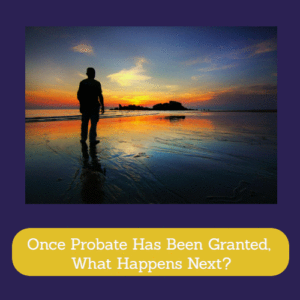 Probate solicitors near me: how to choose
Probate solicitors near me: how to choose
If you’ve reached the point where you are searching for “probate solicitors near me” online, here are a few hints to guide you in how to choose the solicitors that are best for you in your local area:
To contact a solicitor near you call us on 0845 1391399 or complete a Free Online Enquiry
How To Choose Probate Solicitors
1) Consider The Firm That Drew Up The Will
Though it’s no guarantee of quality, choosing the firm that drew up the will in the first place will at least ensure they are familiar with all the details.
Hopefully, the probate solicitor who you speak to will be the actual individual who spoke to the testator (the person whose will it is) about their wishes.
Of course, the will may have been drawn up without a solicitor or by a bank. Nevertheless, this can be a good place to start.
2) Use The “Family Solicitor” Or Ask For Recommendations
Does your family have a go-to solicitor? Could there be one you don’t know about? Or one that does exist but simply hasn’t been mentioned around the dinner table before? It’s worth at least asking.
You might also ask people you know for recommendations on solicitors they’ve used before and thought well of. You could enquire wit
- Family members
- Friends, acquaintances, and neighbours
- Work colleagues
3) Look For The Local Connection
Another way to find a solicitor you can trust is a firm with a strong local history. By way of example, EA Harris has been serving Shotton, Connah’s Quay, Queensferry, Ewloe, Hawarden, and Buckley for over a century.
4) Check Their Fees
Probate solicitors’ fees are always worth asking about before you agree to use them. Most will provide you with a free quote.
It is important to understand that there are a number of different ways that probate solicitors structure their fees:
Hourly rates – this is a flexible option and well suited to situations where the probate process might be relatively simple to complete. You should be able to request an indication of the overall cost before you start.
Fixed fees – the main advantage of fixed fees is that you know precisely how much you pay going in.
Percentage of the estate – some solicitors may charge a small percentage of the overall value of the estate as their fee. This can represent good value in cases where the probate process is likely to be very complicated.
Understanding how probate solicitors’ fees work is particularly important if you are the executor of a will. This is because probate fees can be contested by beneficiaries who feel their inheritance has been unfairly penalised by fees that are too high.
In cases like this, you can be left liable for repaying any contested costs. This means it is worth ensuring solicitors’ fees are reasonable – even to the point of seeking the agreement of any beneficiaries before you confirm you will use specific solicitors.
5) Examine Their Professional Qualifications
It is always worth checking that your solicitor has the right professional qualifications. For instance, EA Harris has Law Society LEXCEL accreditation.
Most solicitors are keen to shout about their qualifications, so they should be easy to spot.
6) Get A Feel For Their Communication Style
The number one complaint of anyone who has ever used a lawyer or solicitor for any task will always be that their communication wasn’t as fast or responsive as the client would have wished.
You can often get a sense of this right from the start. Reach out to any lawyer you are considering and see how they respond. Do they:
- Reply to your emails in a timely and helpful fashion?
- Answer your phone calls or call you back within a reasonable timeframe?
- Speak politely and respectfully?
- Communicate in plain English and explain any legal terms?
- Feel like they are here to help you?
There’s a certain amount of gut feeling involved in this. But with so much resting on being able to communicate clearly, it can be one of the most important things to judge before making your decision about probate solicitors near you.
Looking For Reliable And Trustworthy Probate Solicitors?
Reach out to us for FREE initial advice and a quote at any time.
Get In Touch Today
Let us know a little about your situation on 0845 1391399 or by completing a Free Online Enquiry today and we can connect you with a legal specialist who can give you the kind of advice you’re looking for.

 Can you put a house up for sale before probate?
Can you put a house up for sale before probate? Making an offer on a probate property is fairly common. There are even some upsides compared to buying other properties.
Making an offer on a probate property is fairly common. There are even some upsides compared to buying other properties. It can take a long time to get a Grant of Probate. But once probate has been granted, what happens next?
It can take a long time to get a Grant of Probate. But once probate has been granted, what happens next?